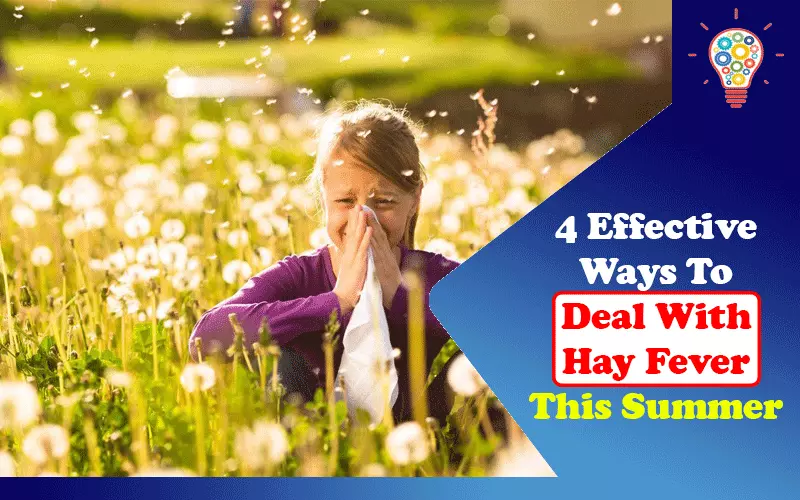Summertime is undoubtedly most people’s favourite season due to the fine weather and endless opportunities for outdoor fun. However, summer might be your worst season if you are one of the 13 million hay fever sufferers in the UK when the grass pollen season starts. Nevertheless, you can still enjoy the season if you know about these four effective ways to deal with hay fever this summer.
Table of Contents
1. Invest In Antihistamines
Inhibiting histamine production is key to hay fever relief, so antihistamine medication is also a superb choice to tackle hay fever this summer. These antihistamines typically come as nasal sprays or hay fever tablets, blocking histamine release in your body and lowering hay fever allergic reaction. You can take Fexofenadine tablets and other great antihistamine medication as preventive treatment during days when you know there will be too much pollen flying around. Alternatively, you can take these drugs as needed when you initially notice or are developing hay fever symptoms.
2. Try Carotenoids
Many health experts recommend carotenoids as one of the best and most effective natural solutions to combat hay fever for good reasons. Your sore throat, clogged ears, fatigue, and other hay fever symptoms begin right after exposure to allergens like pet dander, pollen, or dust mites. These allergens trigger your immune systems, which erroneously identifies the substance as harmful. In response, your immune system lets out antibodies to defend your body. These antibodies cause your body to produce histamine and other inflammatory chemicals to combat allergens, inducing all your undesirable hay fever symptoms. However, carotenoids reduce inflammation, inhibit histamine release, and fortify your immune system. Therefore, ensure that foods like spinach, apricots, sweet potatoes, and carrots feature prominently on your summer groceries’ lists since they are all excellent and healthy carotenoid sources.
3. Include Local Honey In Your Diet
Honey is considered an effective natural hay fever remedy because bee pollen in honey can desensitise you to local and other pollen. However, it is crucial to consume local honey since you are likely to take in local pollen. Over time, you might become less sensitive to your local pollen and experience fewer and less severe seasonal allergy symptoms as a result. Although honey’s efficacy in treating hay fever isn’t entirely backed by science, many allergy sufferers swear by honey’s effectiveness in alleviating their hay fever symptoms. Besides, it is hands down the tastiest remedy out of all other choices, so it doesn’t hurt to include local, unprocessed honey in your daily diet.
4. Use A Dehumidifier
Hiding indoors for most of your summer is a great idea to avoid encountering outdoor allergens. However, indoor air quality and allergens like mould, dust mites, and pet dander can still trigger your hay fever symptoms. Therefore, investing in a dehumidifier is an excellent idea since these devices take moisture out of your indoor air. As such, mould, mildew, and dust mites don’t get a conducive environment to thrive, allowing you to combat hay fever this summer effectively.

